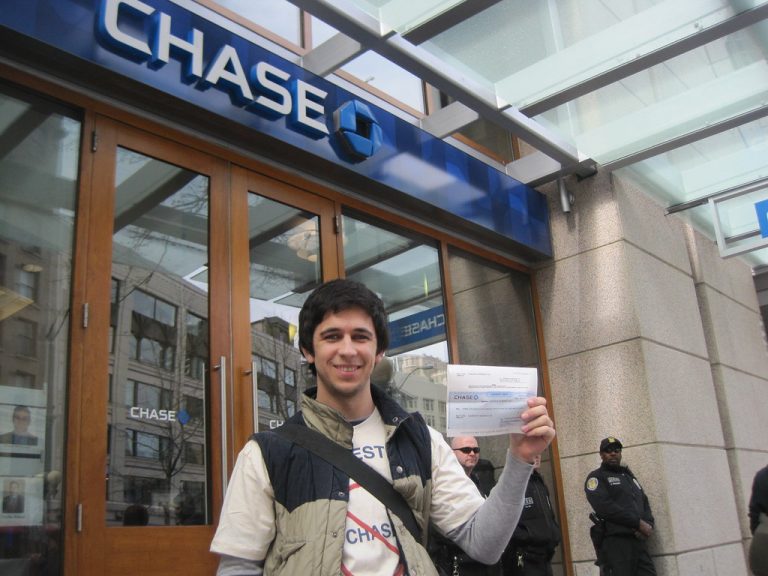![How Long Do Wire Transfers Take? [BEST GUIDE] 2 how long do wire transfers take?](https://milvestor.com/wp-content/uploads/2021/09/photo_2021-09-09_17-44-48.jpg)
Seriously, how long do wire transfers take? Sometimes, wire takes longer than expected but knowing how the” mechanics” works should clear the air.
Thanks to various electronic transfer options, sending money around the world has never been faster or easier. Wire transfers, Automated Clearing House (ACH) payments, and direct deposits are all popular money transfer methods. This content will address all important questions related to “how long do wire transfers take” and more.
It’s critical to know which method is best for you if you’re sending a payment and time is of the essence. Without any further delay, let’s shed more light on the question, how long do wire transfers take?
What is Wire Transfer?
However, before we do that, what exactly is a wire transfer?
The electronic transmission of cash between individuals or organizations is known as a wire transfer. It enables people in far-flung parts of the world to securely transfer money without meeting in person.
Before the bank transfers the funds to the other party, the individual initiating the transaction must generally pay a transaction charge. The recipient’s bank puts its reserve money into the recipient’s account after receiving the information. The two institutions settle the payments on the back end when the receiver has received the cash. Physical exchange of cash is not necessary.
how long do wire transfers take?
One of the most significant advantages of sending money via wire transfer is the speed. Domestic wire transfers can be completed in as little as 24 hours, and recipients won’t have to wait for the funds to clear before withdrawing them.
However, bank employees must still review and approve the fund’s transfer, which may cause delays. A wire transfer can be delayed if the bank makes a mistake or error regarding the recipient’s information.
To ensure that your wire transfer arrives on time, find out when your bank’s cut-off time is for wire transfers. The cut-off time for most banks is 5 p.m., but it varies. Requests submitted after this time will be processed the next business day.
Non-bank transfer services can also be referred to as a “wire transfer.” These services may be quicker than bank-to-bank transfers, but they may not provide the same level of security.
How long does it take to make an international wire transfer?
Now that we have answered your question, “how long do wire transfers take”? Let’s take a broader look at things. If you submit your transfer request before your bank’s cut-off time on a working day, it should be handled the same day. If not, it will most likely be processed the next working day.
When the wire transfer is executed, the funds for the transfer and any transfer costs are generally taken from your account.
According to several websites, an international wire should arrive in 1-5 business days. However, several variables might cause your transfer to take longer. Later, I’ll go through those variables in further detail.
However, just because your bank processes an international wire on that business day does not guarantee that it will appear in your overseas recipient’s bank account that day.
How does a wire transfer work?
The inner workings of how wire transfers work directly impact answering the question, how long do wire transfers take?
An individual or entity seeking to conduct a wire transfer visits a bank and instructs them to send a specified amount of money. The sender supplies the recipient’s SWIFT or IBAN and BIC codes so that the bank knows where to transfer the money.
The sender must deposit the money to be sent and a transaction fee established by the sending bank before the transaction can begin. The sending bank then sends a message to the receiving bank to clear the funds via a secure technology like SWIFT or FedWire.
When the funds have cleared, the recipient’s bank receives a message instructing it to carry out the payment according to the instructions. When the sender initiates the transaction, the funds may take several hours or days to reach the recipient’s account. To settle the payment, one of the banks must have a reciprocal account with the other.
![How Long Do Wire Transfers Take? [BEST GUIDE] 3 how long do wire transfers take?](https://milvestor.com/wp-content/uploads/2021/09/photo_2021-09-09_17-44-42.jpg)
What information do you need to send a wire transfer?
Make sure you have all of the essential information before submitting your transfer request. While this will differ from bank to bank, you should anticipate being asked for the following information:
- The recipient’s bank’s name and address
- The IBAN (International Bank Account Number) of the recipient (International Bank Account Number)
- The recipient’s bank’s BIC/SWIFT code
- The amount of the transfer and the currency that the receiver will receive.
- The reason behind the transfer (Payment to the recipient)
- Who will be responsible for covering the transfer fees?
In most cases, you can send money to a bank through the internet, phone, or in person. Prepare to offer detailed instructions to your bank, including the amount of money you want the receiver to receive.
Because you or the bank teller will almost certainly be required to fill out a form for the transfer to take place, be sure the information you provide is accurate. After all, you want to make certain that your funds reach the intended recipient.
If you’re using a non-bank money transfer service like MoneyGram to send money, you’ll need to understand how the wiring process works. You may not need a bank account to complete the transaction in some cases. Using these services usually necessitates paying cash in person. The receiver usually gets to walk away with the money they got once the transaction is completed.
How long does it take to receive money from overseas?
Surprisingly, it’s frequently the receiving end of an international wire transfer that takes the longest. Most financial transactions now take place online in our increasingly digital environment, so you’d think a wire transfer could be completed immediately, right? That’s not the case.
Funds are taken from the sender’s account after an international wire transfer is begun. The transferor instructions are often routed through the SWIFT network, travelling through up to three intermediate or correspondent banks before arriving at the final destination.
Even after the funds have arrived at the recipient’s bank, processing time on that end of the transaction might require delays. Even if the money is already in the recipient’s bank account, it might take even longer for the transfer amount to reflect as useable cash.
How safe is a wire transfer?
Scammers who get control of another person’s bank account and remove cash or reroute funds to another account pose the greatest risk. Because of the increasing number of bank fraud instances, there are worries regarding the safety of online money transfers.
Before being placed in the recipient’s account, wire transfers are performed from one bank to another. To create an account and utilize the wire transfer service in the United States, federal rules require users to authenticate their identity and disclose their physical address. It makes anonymous money transfers virtually impossible and eliminates wire transfer frauds.
What types of wire transfers are there?
Domestic and international wire transfers are the two types of wire transfers. The cost and delivery time for each of these wire transfer options vary. Domestic wire transfers are usually completed on the same day. Wire transfers inside the United States cost around $25 per transaction, although the price can range from $25 to $35 depending on the financial institution.
On the other hand, international wire transfers must be cleared by a United States clearinghouse and at least one foreign country’s processing system, which might take several days. Individuals and businesses use this method to transfer significant amounts of money in a foreign currency.
Sending money from the United States to another country using international wire transfers costs about $43. The recipient’s bank deducts the amount of money transferred to the receiver by around $8 to $10. Some banks may levy additional fees in addition to the transaction fee.
![How Long Do Wire Transfers Take? [BEST GUIDE] 4 how long do wire transfers take?](https://milvestor.com/wp-content/uploads/2021/09/photo_2021-09-09_17-44-46.jpg)
Why do international transfers take so long?
The different points listed in this section are particularly important to note if you want to fully understand the question of “how long do wire transfers take?”.
A variety of circumstances might cause an international wire transfer to be delayed. Some are beyond your control, while others may be avoided with proper planning.
1. Weekends
Weekends, on the other hand, may cause your transfer to delay. Even though banks are closed on Saturday and Sunday in the United States, the weekend is not everywhere.
The weekend, for example, falls on Friday and Saturday in several Middle Eastern nations such as the UAE and Egypt. As a result, you should schedule your transfer for a business day.
Also, if feasible, request your transfer at the start of the working week so that it has enough time to reach and be processed in the recipient’s nation before the weekend arrives and slows things down.
2. Currency
It’s conceivable that the wire transfer will take longer to process if it has to be received in a different currency than the one you’re sending it in. Unfortunately, unless your bank allows you to transmit the transfer in the recipient’s local currency, there isn’t much you can do about it.
3. Time zones
In the United States, midday is nightfall in Europe. On the other hand, much of Asia’s workday begins when the United States is asleep. As a result, you may need to do some complex calculations to schedule your transfer properly. Even though your business day in America is open, it does not guarantee India’s financial system is open and operational.
4. Bank Holiday
You’ll want to be aware of bank holidays in both your country and the receiver’s country to ensure that your international wire transfer reaches its intended recipient as promptly as possible. While your country’s banks may be open, the recipient’s country may have different bank holidays.
Some nations shut down their financial networks for weeks at a time during big holidays. This implies that depending on when you send the money, the recipient bank may not complete the transfer. This type of circumstance may be avoided with careful planning.
5. Country Destination
Because some nations’ financial infrastructures are slower than others, banks may take longer to interact with one another and deliver money to its eventual destination. Other nations’ rules may be stricter, requiring payments to go through more rigorous fraud protection procedures, slowing them down even further.
6. Anti-laundering Regulations
Banks and financial institutions must adhere to stringent rules and legislation put out by local and international regulatory authorities to combat global terrorism and fraud. This implies that certain payments may require further checks despite your and your bank’s best efforts.
Unfortunately, if this occurs, institutions are frequently legally unable to give you much information during the process. This not only creates consumer confusion and annoyance, but it may also drastically slow down performance.
Can you cancel a bank transfer after it’s been sent?
What if discovering “how long do wire transfers take?” doesn’t cut it, and you want to cancel a wire transaction, is there a way to get it done?
Wire transactions are usually irreversible. After the recipient’s bank accepts the transfer and gets the monies, that’s all there is to it. You won’t be able to get your money back at that moment. However, there are a few outliers.
If the bank that originated the wire transfer makes a mistake, your wire transfer may be reversed. If the receiver received more money than they were meant to, the problem might be rectified.
You may be able to cancel a wire transfer if you start one but change your mind about sending money to someone.
However, you’ll have to act swiftly. According to a relatively new provision under the Dodd-Frank Wall Street Reform and Consumer Protection Act, consumers transferring money overseas typically have the right to cancel their wire transfers for free within 30 minutes.
![How Long Do Wire Transfers Take? [BEST GUIDE] 5 how long do wire transfers take?](https://milvestor.com/wp-content/uploads/2021/09/photo_2021-09-09_17-44-44.jpg)
How long do wire transfers take? – Conclusion
With this content, we have done our best to answer questions like “how long do wire transfers take?” and more. Today, money can be sent in a variety of ways. You may have written a check in the past. However, you may now send money online using various payment methods, including applications such as PayPal and Venmo.
Waiting and wondering when the money will arrive may be one of the most nerve-wracking elements of completing an international wire transfer, regardless of your motivation for doing so.
Hopefully, this advice provided on “how long do wire transfers take?” has given you a better understanding of what to anticipate and, more significantly, what you can do to guarantee that your wire arrives on time.
[elfsight_faq id=”6″]- The Complete Guide to Crypto Arbitrage - July 5, 2025
- The Impact and Challenges of Central Bank Digital Currencies (CBDCs) Explained - July 5, 2025
- How To Buy And Use Amazon Gift Card - July 5, 2025

![How Long Do Wire Transfers Take? [BEST GUIDE] 1 how long do wire transfers take?](https://milvestor.com/wp-content/uploads/2021/09/photo_2021-09-09_17-44-48-1024x682.jpg)


